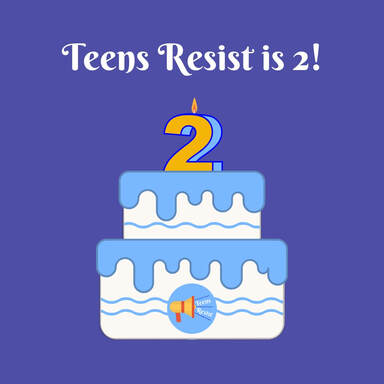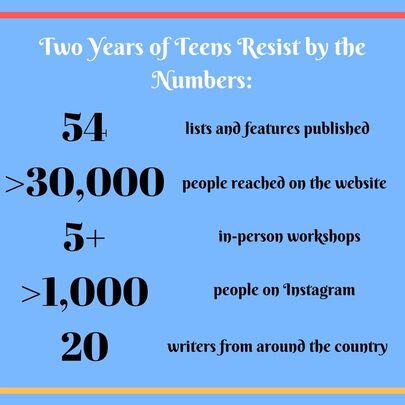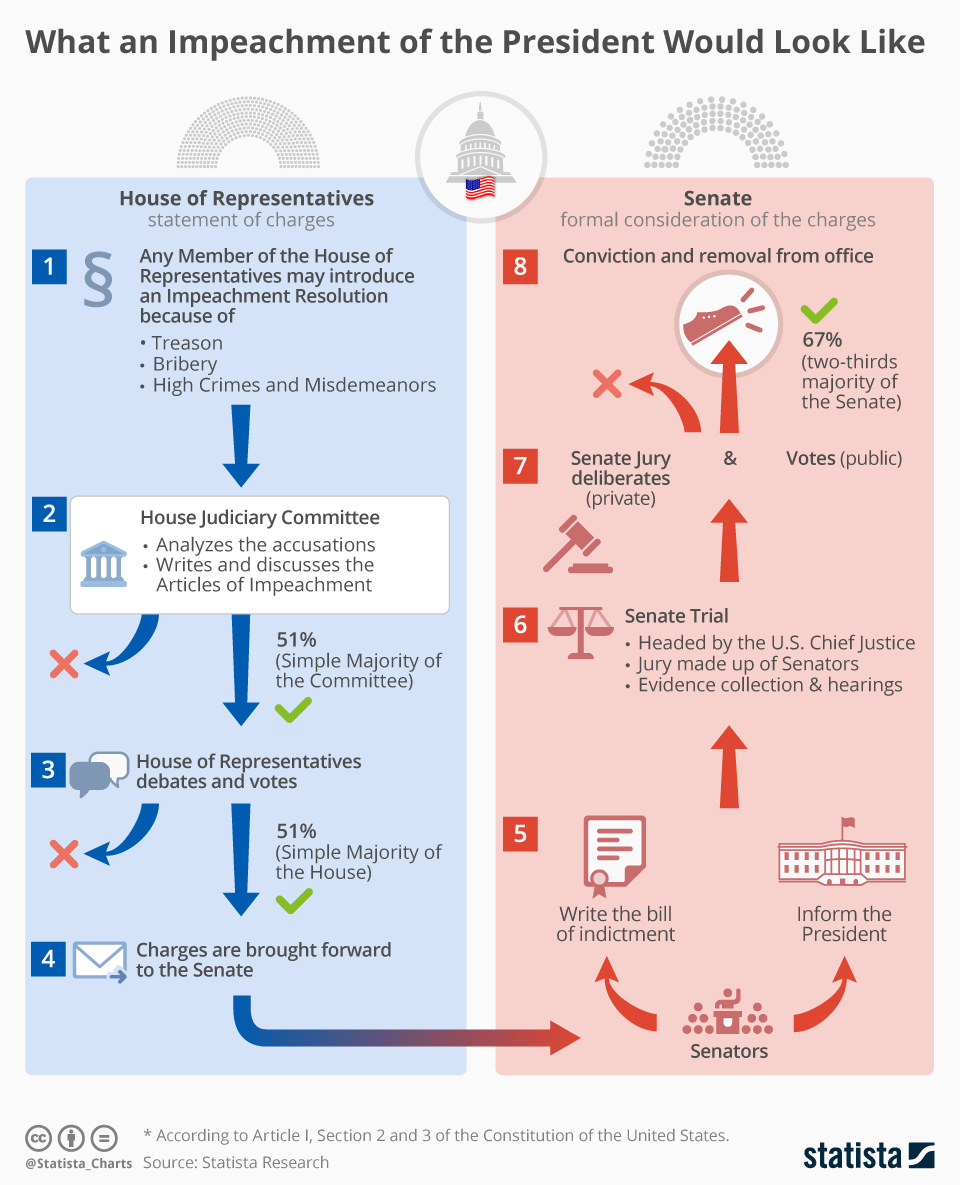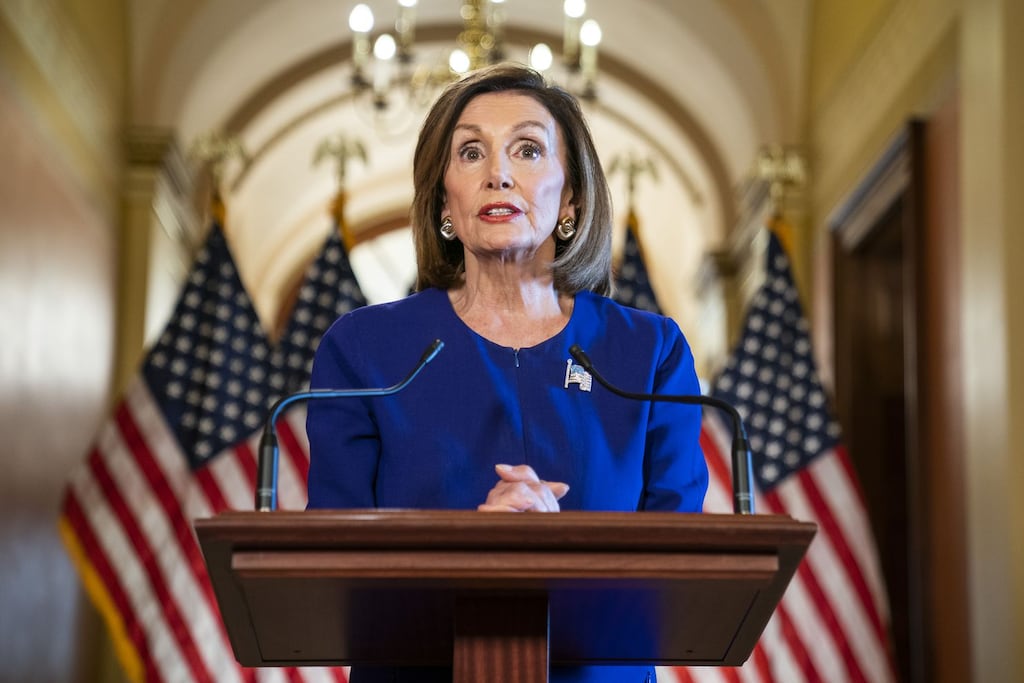LISTSOur biweekly lists lay out notable issues in the news and tell you what you can do about them.
|
SUBSCRIBE TO EMAIL UPDATES:
|
|
Hey Teen Resisters! With all the impeachment stuff that's going on, it's really easy to feel overwhelmed (we know that we do). And that makes sense—we're at a moment in history right now that it unprecedented and exceptional; it will likely be instrumental in shaping the political landscape of America for decades to come. Regardless of how important it is to stay up to date on all the impeachment stuff, though, it's also important to not let all the other key happenings get lost. Here are some items that might have flown under your radar over the past couple of weeks--read, digest, and act at your own pace! Sending large amounts of love & good vibes, and happy activisting :)) xx, TR Note: In addition to content from our staff writers (listed here), this list includes writing from Ruby Goodman. Before you dive in, we want to update you on a few quick things we want to update you on: 1) The October 11th CNN LGBTQ Town Hall for 2020 Democratic presidential candidates, which came in the wake of the October 8th arguments for one of the most important LGBTQ+ rights Supreme Court cases in modern history (concerning workplace discrimination). Read about the town hall here and the case here. 2) The governor's race in Kentucky--if you're looking for a quick, simple, and impactful action to take, this topic is for you. The November 8th Kentucky gubernatorial election features a matchup which is--likely surprisingly to many of you, since Kentucky tends to be a red state--currently even, according to polls. Current AG Andy Beshear is running to unseat incumbent Gov. Bevin--read more about the race here, and phonebank here: www.mobilize.us/kydems/event/108304/ what went down
As they’ve struggled for citizenship in the Middle East, they have faced violence and oppression from all directions. In the past, the Kurds have created resistance parties to challenge Turkey in an effort to establish their own state while also trying to avoid conflict with the powerful Syrian regime. Because of this threat, the Turks have viewed the Kurds as a terror group and treated them as such, creating a major rift between the two groups. So, where does the U.S. come in? In the early 2010s, the radical Islamic terror group ISIS threatened the safety of the Kurds as it sought to take over territory in which the Kurds had been living. While Turkey looked the other way, U.S. and Kurdish forces teamed up to try to take down ISIS. The Kurdish troops led much of the decade’s fighting against ISIS, and were responsible for a lot of its success. They also established a cooperative relationship with the United States, regardless of the fact that the U.S. was (and is) an official ally of Turkey through NATO, causing the U.S. to be essentially caught between two hostile groups. Because of the middle ground position they were in, the U.S. decided to insert troops in the hot zones of Syria as a buffer between the Turks and the Kurds, consequently playing a major part in cooling the simmering conflict between these two groups. In addition to preventing conflict between Turkey and the Kurds, U.S. troops also stopped Bashar Al-Assad, the president of Syria, from seizing control over Northern Syria and the Kurds. Beyond that, U.S. forces in Syria helped subdue ISIS in the area, and secured Isis prisoners in Kurdish possession.
All in all, the last couple weeks have been filled with explosive violence in Northern Syria; the Kurds are in more danger of being destroyed than ever, and Russia, Assad, and ISIS all have gained global power. Vice President Mike Pence and President Erdoğan of Turkey agreed to a five-day ceasefire in Syria, followed by Trump lifting sanctions on Turkey, claiming that the ceasefire would be permanent. However, given the global chaos of the past couple of weeks, it would be very surprising if it held. Whatever happens, this abrupt U.S. foreign policy move will have repercussions in Syria for years to come.
What can you do?
Delaware has previously passed laws mandating that both the Department of Corrections and the Department of Services for Children, Youth, and Their Families offer free pads and tampons. Several other states, including California, Illinois, New York, and New Hampshire, have also passed laws requiring schools to provide period products. Rep. Longhurst and Sen. Lockman hope to have the bill drafted and proposed by the end of 2019.
What You Can Do:
0 Comments
10/6/2019 0 Comments Teens Resist is 2!On October 4th, 2017, Teens Resist launched! Two years later, we're grateful for every moment since.
Our mission has been and will always be to make activism and politics accessible to youth, who deserve to and do have a huge voice. In the past two years, we’ve watched and participated as youth involvement in politics and social justice has only grown and grown- and we’re really really here for it. Nothing makes us happier than finding out that our content has been helpful to someone! It makes all of it worth it. We hope that you’ve had that experience- please let us know what your experience with TR has been! We’ve stayed true to our core by publishing online content, but we’ve also expanded into real-life workshops which have been so fulfilling. What started as one person in her room has grown to include two co-directors, two social media staff, and 20 writers, all of whom hail from across the country. We’ve put out 54 long form lists/features, garnered views, and built this amazing social media community. We’re proud of the work we do and we are proud of YOU for the amazing ways that you use it. We feel the love and hope you do too. Overall, these past two years have just gone above and beyond our wildest dreams, and we know it’ll only get more amazing. We have some big plans for 2020. Thank you so much for your support, no matter how long you’ve known about TR! We love and appreciate you. 10/6/2019 0 Comments The Impeachment ExplainerHi there Teen Resisters! It's been a while, hasn't it? But we're back and better than ever with this feature on impeachment. There's a lot going on in the news right now but obviously, the announcement by Nancy Pelosi that there is officially an impeachment inquiry into President Trump has dominated the news cycle and been a source of excitement and confusion. So what is going on exactly? We've got you covered to help you understand it all. What is impeachment?
What led to this inquiry?
What Happens Now?So with all this in the works, what’s really to come of this movement for impeachment? President Trump will very likely be impeached in the House of Representatives, seeing as it is controlled in large part by Democrats. By this point, even moderate Democrats in conservative districts -- NY 11’s Max Rose, for instance -- have come out in favor of impeachment. However, seeing as the Republican party controls 53 seats in the Senate (not to mention to tie-breaking Vice-Presidential position) it's unlikely he'll be convicted in the Senate, especially considering the ⅔ supermajority impeachment requires. This is in large part because of the political pressure the GOP and its donors place on their Senators; should one step out of line and caucus with the Democrats, they can rest assured that their campaign funds will all but dry up and they’ll be branded a “traitor to Trump.” In fact, that fact may be all that’s holding the line -- according to Jeff Flake (R-AZ), 35 of his fellow Republican Senators would be voting to impeach Trump if their votes were private. This suggests that anti-Trump sentiments run deep throughout Washington; it’s the votes of his base (some 31% of voting Americans, polls estimate) they want, and it’s those votes the candidates lose when branded traitors. This being said, there have been multiple Republicans, including Flake, who have spoken out about this being a turning point. Despite Trump’s imminent impeachment in the House, it’s doubtful that a sizable portion of Trump’s base will change their affiliation. Having already seen racism, xenophobia, ableism, and sexism from him (not to mention a previous example of what he’ll be impeached for: election interference by colluding with a foreign power), it’s hard to imagine that many will be so outraged as to pick a different hill to die on. Regardless of what happens, the impeachment process will hang all of Trump's laundry out to dry, so to speak. And it's important that Pelosi and others are setting a precedent that, in Pelosi's words, "no one is above the law." It's about time that Trump is formally held accountable, and we're excited to see where this goes. For more on this, see this very helpful flowchart from Buzzfeed News about the outcomes of this inquiry. We hope that this was a little clarifying in this storm of news. There's lots more to come, and we can't wait to keep updating you. See you soon!
Peace & Power, Teens Resist |
UPdatesThese lists include featured organizations, scripts, numbers, news updates and inspirational activists. Archives
January 2022
Categories |
About |
Content |
|








 RSS Feed
RSS Feed
